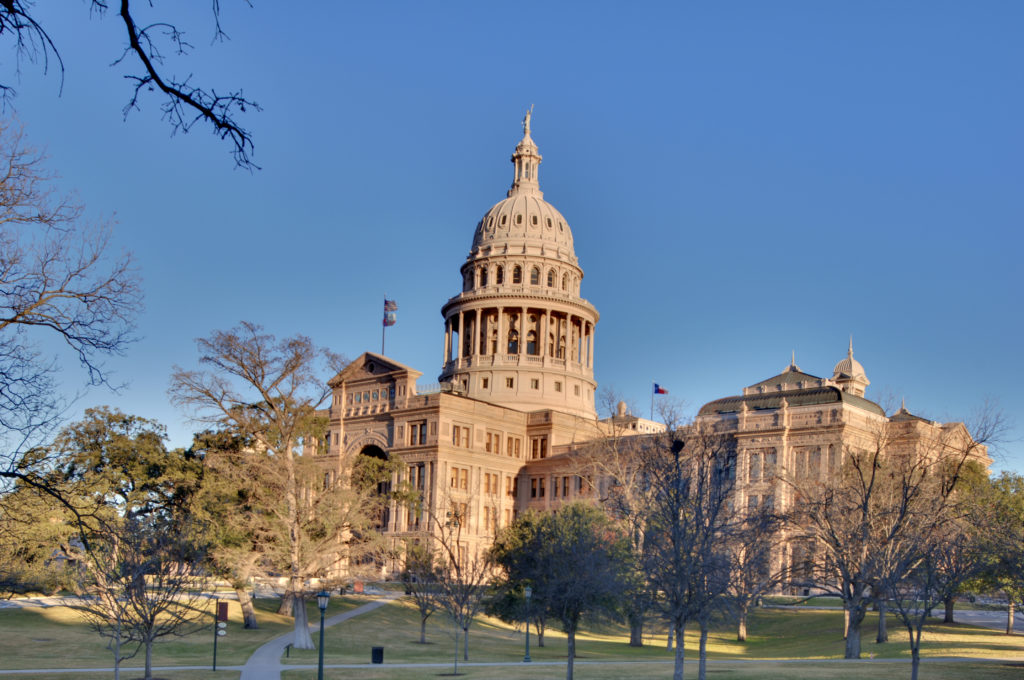This past legislative session wrapped up on May 27th, 2019. For four months, legislators have been writing and drafting bills impacting the Austin tech community. Issues such as voting rights, broadband, and censorship came to the forefront this session, among other critical issues. Here are three bills from this session, their status, and why they matter.
SB 9 by Senator Bryan Hughes (R-Mineola)
SB 9 by Senator Bryan Hughes was one of the most controversial bills of this legislative session, bringing voter rights activist across Texas to the Capitol to testify against it during the bill’s committee hearing. The bill’s scope was wide-ranging, proposing everything from charging those who vote when ineligible — even unknowingly — with a felony, allowing partisan poll watchers to stand at voting stations when someone is receiving aid when voting from someone who isn’t a relative, and granting the state attorney with direct access to voter rolls. All in the name of election integrity. If passed, this bill would have had direct consequences on civic engagement in Texas, creating an environment that would discourage citizens in and out of the tech sector from voting out of fear of potentially making a mistake and risking punishment. League of Women Voters Texas President Grace Chimene echoed these concerns saying, “SB 9 is not a solution to false rumors of in-person voting fraud, instead it makes it harder to vote and scarier to participate.” SB 9 passed the Senate but was killed when it failed to be put on the House calendar for a vote.
SB 14 by Senator Robert Nichols (R-Jacksonville)
In the 1920s and 1930s, many rural Texans were left isolated and without electricity. This soon changed when then Congressman Lyndon Baines Johnson ran for a congressional seat, promising that he would deliver electricity to the residents of his district. In 1939, electricity finally came to the Texas Hill Country when the Pedernales Electricity Cooperative established a 1,800-mile section of electricity lines in Burnet County.
Unfortunately, when broadband began spreading throughout the state of Texas, Texans in rural areas again faced a similar problem, isolated by a lack of broadband in their communities. With 70 years of laws and regulations around co-ops, the current electric co-ops could not simply become telecommunication providers, as lawmakers did not want electric and phone co-ops competing with one another. SB 14 aims to get rid of that restriction, allowing electric co-ops to use existing infrastructure to provide broadband in rural communities. The bill was co-authored and co-sponsored by legislators across party lines, likely due to the relative ease of implementing the changes enumerated by the bill. “Because all the other broadband plans that have been proposed use subsidies. This one asks the state for nothing. It asks the federal government for nothing,” bill author Senate Robert Nichols said. Abbott signed the bill on June 7th, and the bill became effective that very day. This is a huge win for rural Texans across the state, as well as technology companies who will be able to finally invest and send jobs to the region.
SB 2373 by Senator Bryan Hughes (R-Mineola)
Senator Hughes also made waves with SB 2373 relating to free speech and social media websites. Per the bill, Texans who felt as if they were being censored on social media platforms such as Twitter and Facebook could file a complaint with the Attorney General Ken Paxton under the Texas Deceptive Trade Practices Consumer Practice Act. It would then be up to Attorney General to decide to pursue a case against the social media platform in question. Those opposing the bill claimed the bill was in violation of the federal “good Samaritan” policy that allows social media platforms to regulate content posted on their sites. Interim Executive Director of Austin Tech Alliance, Sarah Ortiz-Shields, explained the impact the bill would have on the tech industry when testifying against the bill at its committee hearing.
“I am here testifying in opposition to SB 2373 out of concern for the negative message it sends to tech companies. That message is that you’ll get sued by the State of Texas for merely enforcing content standards that are written to prevent spam, harassment, and gore. Texas’ tech industry – and particularly Austin’s – has seen amazing growth over recent years. In fact, in 2017, tech contributed $136 billion to the state’s economy – or around 8.7 percent of the overall economy. Part of that success is because of Texas’ relatively predictable regulatory environment, which would be turned on its head if this bill were to pass. I urge the committee to vote against the bill so that tech companies can continue to remove hate speech and other harmful content from their private platforms without fear of getting dragged into court by the Attorney General.”
Despite passing in the Senate, the bill did not pass as it was left pending in House committee.
If you want a more in-depth look at the 86th Texas Legislative Session, RSVP for our event, Wrapping Up the 86th Legislative Session, being held on Thursday, June 27th at 6:30pm. Guest speakers will highlight topics ranging from school finance, property taxes, and elections, drawing from Lieutenant Governor Dan Patrick’s list of 30 priority bills.
This past legislative session has reminded us of the increasing importance of ensuring that those in the tech sector remain civically engaged and aware of potential changes and updates happening to the industry from the Capitol.
To stay up to date with ATA and policies that affect the tech sector, join ATA today and follow along with us on Twitter.

